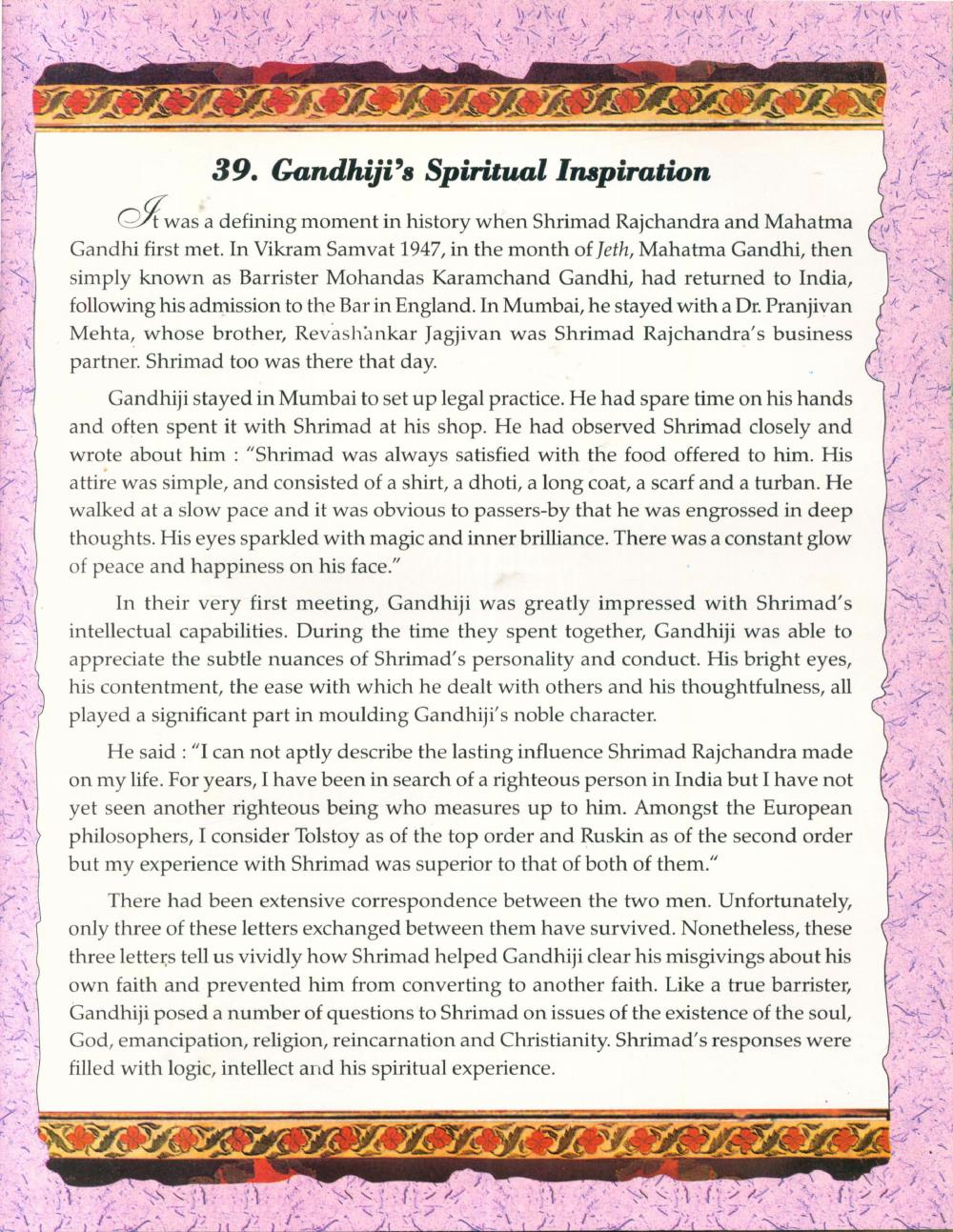________________
39. Gandhiji's Spiritual Inspiration
t was a defining moment in history when Shrimad Rajchandra and Mahatma Gandhi first met. In Vikram Samvat 1947, in the month of Jeth, Mahatma Gandhi, then simply known as Barrister Mohandas Karamchand Gandhi, had returned to India, following his admission to the Bar in England. In Mumbai, he stayed with a Dr. Pranjivan Mehta, whose brother, Revashankar Jagjivan was Shrimad Rajchandra's business partner. Shrimad too was there that day.
Gandhiji stayed in Mumbai to set up legal practice. He had spare time on his hands and often spent it with Shrimad at his shop. He had observed Shrimad closely and wrote about him : "Shrimad was always satisfied with the food offered to him. His attire was simple, and consisted of a shirt, a dhoti, a long coat, a scarf and a turban. He walked at a slow pace and it was obvious to passers-by that he was engrossed in deep thoughts. His eyes sparkled with magic and inner brilliance. There was a constant glow of peace and happiness on his face."
In their very first meeting, Gandhiji was greatly impressed with Shrimad's intellectual capabilities. During the time they spent together, Gandhiji was able to appreciate the subtle nuances of Shrimad's personality and conduct. His bright eyes, his contentment, the ease with which he dealt with others and his thoughtfulness, all played a significant part in moulding Gandhiji's noble character.
He said: "I can not aptly describe the lasting influence Shrimad Rajchandra made on my life. For years, I have been in search of a righteous person in India but I have not yet seen another righteous being who measures up to him. Amongst the European philosophers, I consider Tolstoy as of the top order and Ruskin as of the second order but my experience with Shrimad was superior to that of both of them."
There had been extensive correspondence between the two men. Unfortunately, only three of these letters exchanged between them have survived. Nonetheless, these three letters tell us vividly how Shrimad helped Gandhiji clear his misgivings about his own faith and prevented him from converting to another faith. Like a true barrister, Gandhiji posed a number of questions to Shrimad on issues of the existence of the soul, God, emancipation, religion, reincarnation and Christianity. Shrimad's responses were filled with logic, intellect and his spiritual experience.
CYTOWOYOYOYOYOYOTIVEWAYTON




